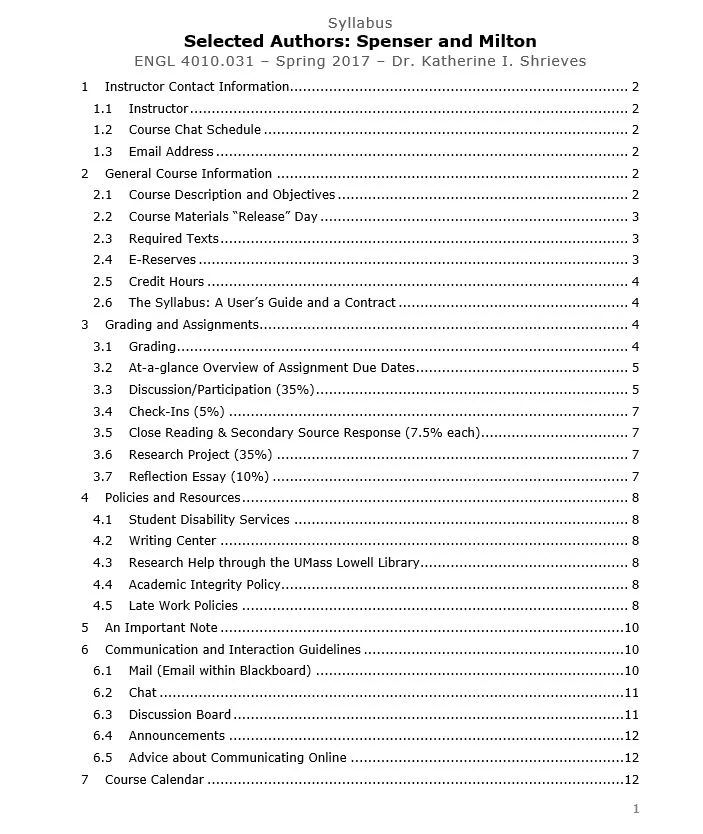The Late-and-Missing Work Conundrum, Part 1: What’s the Problem?
Imagine the following scenario: Jane works full time in a retail store, is the primary caretaker for her two young children, and is taking three online classes. She has an essay due by 11:59pm this Sunday in her English class. Jane knows that she should work ahead, but given her busy schedule, it’s just not possible, so she plans to write her essay this weekend, when her kids are napping and after they go to bed. On Friday night, she comes down with the stomach flu; she’s laid up in bed all weekend, and by Sunday night, she’s only starting to feel well enough to return to work. The 11:59pm deadline passes, and she hasn’t submitted her English paper.
What happens now? What should Jane do, and what should Jane’s professor do? How should teachers in online classes deal with late or missing work? Is it possible to craft late-and-missing-work policies that are fair and consistent, rewarding on-time performance while encouraging students like Jane to get back on track?
These questions have consistently been some of my biggest challenges as an instructor, and in this essay series, I’ll share the philosophy and policies that I’ve developed through my years as an online educator.
The Problem
For many years in both online and in-person classes, my policy for major assignments such as essays was essentially the following:
- Missing assignments count as a zero
- Late assignments will be accepted for one week, with a 5-point penalty per day
- Due date extensions may be granted if they are requested and approved in advance
Pretty straightforward, right? Over time, I realized that these policies weren’t working either for the students or for me.
First, “missing equals zero” leads to some problematic grading. Think about the basic math: (100+0)/2=50. Zeroes can quickly sink an average, making it difficult or impossible for a student to pass a class in which they’ve missed one major assignment. You might be offering some objections at this point: “Well, yeah, if you do nothing, that’s a zero. Why should you earn points for doing nothing? Plus, isn’t it only fair for a student to fail a class if they don’t turn in a major essay?” Please hold onto these questions and bear with me. These objections have quite literally kept me awake at night over the years, and I will address them later!
Second, I find that it’s virtually pointless to say that extension requests must be made in advance. I wish the world worked that way, but the fact is that it doesn’t. When students don’t submit an essay on time, most of the time they don’t anticipate they’re going to fail to meet the deadline. There are rare examples of responsible, proactive students who know that they’re going out of town or have a scheduled surgery or something, but these instances are far outweighed by the many, many students who have last-minute illnesses, technical problems, or family crises. In the real world, emergencies can’t be anticipated (that’s why they are emergencies), and when a crisis hits, most of the time a student’s first thought isn’t, “I’d better contact my professor right away, because I don’t think I’ll get that paper written on time.”
Finally, the overarching problem will all three of these policies is that they reward students who are confident and assertive enough to ask for special treatment. I’m going to reveal an uncomfortable secret about my teaching persona: if a student contacts me with a special request within a reasonable timeframe after the due date, I often will grant an exception or extension, breaking my own the clear “rule” that extensions must be requested in advance.
I also don’t believe that professors should also be detectives and judges. I’m not going to do sleuthing into timestamps on files (which can be faked!) or request obituaries or medical records (which are, frankly, none of my business). In a professional environment, I’m going to assume that students are telling the truth, and in the absence of evidence or precedent to the contrary, I’m going to give students the benefit of the doubt most of the time. What this means is that those who are bold enough to argue on their own behalf will get exceptions, while others who silently accept the policies as fact will get bad grades.
Let’s return to the hypothetical scenario I posed earlier. Here are a few ways that it could play out, assuming the late-and-missing policies that I’ve been discussing:
- Jane doesn’t contact her professor. She squeezes in writing her paper after work early in the week, and submits it on Wednesday. Using the grading rubric, the paper earns a B (85), but with a 3-day late penalty of -15 points, she gets a D+/C- (70).
- Jane feels overwhelmed and never turns the paper in, earning a zero. Thinking that her grade is now sunk, she starts to miss other deadlines in the course. She eventually fails because of missed work.
- Jane feels overwhelmed and never turns the paper in, earning a zero. However, she decides to redouble her efforts to keep up in the class, and the remainder of her work that semester is exemplary. By the end of the course, all of her other work is A quality, but her zero on the missing essay pulls her overall average down to a D.
- Jane writes to her professor on Monday morning. She apologizes, explains what happened over the weekend, and begs for an exception to the late paper rule. The professor grants her an after-the-fact extension, and she turns her paper in by Wednesday with no penalty.
None of these options is great. In the first three scenarios, Jane accepts the course policies, but those policies don’t really encourage her to get back on track. In the final scenario, Jane experiences zero consequences for her combination of bad luck and bad planning, but that’s not fair to her classmates, some of whom may have prioritized their academic work in spite of similar obstacles or may have missed the deadline for similar reasons but not spoken up about it.
Over the years, I have taught many students like Jane. Every time someone Jane contacted me, I struggled with the “fairness problem” of granting Jane’s extension while penalizing her silent classmates. Every time I calculate course grades at the end of the semester, I agonize over the effect that zeroes have on Jane’s final grade.
I knew that I needed to change my philosophy about late and missing work, and I knew that my revised philosophy needed to be reflected in a clear, fair policy.
In the essay series that will follow in the next several weeks, I’ll dive deeply into the philosophy and practice of late-and-missing-work policies, starting next week with Part 2: "What’s Wrong with Traditional Approaches?"




